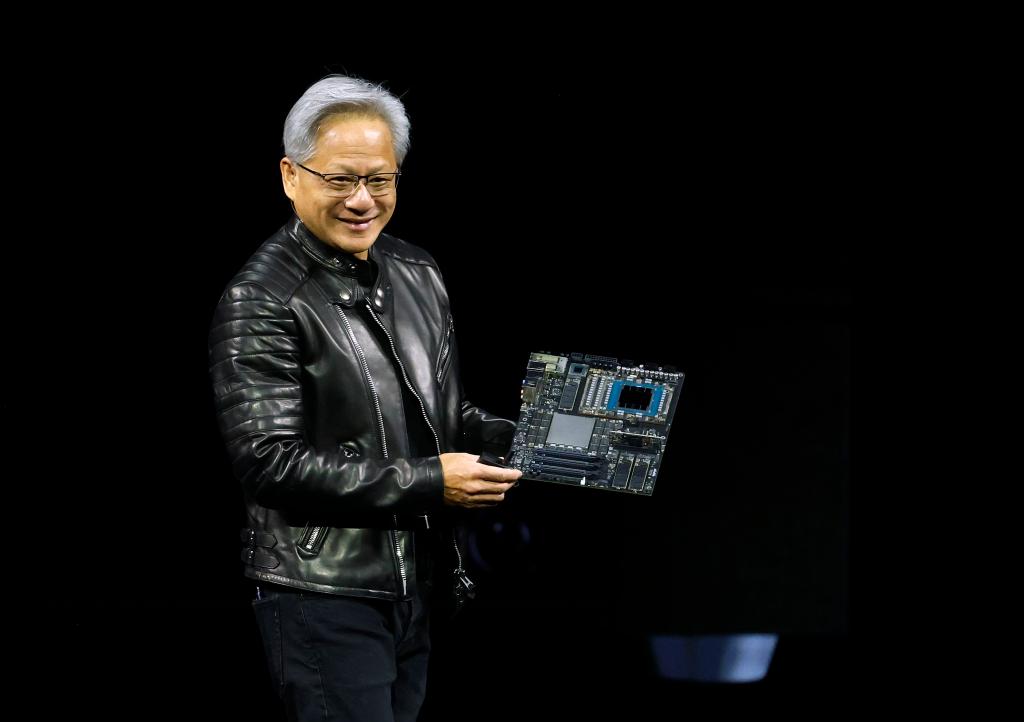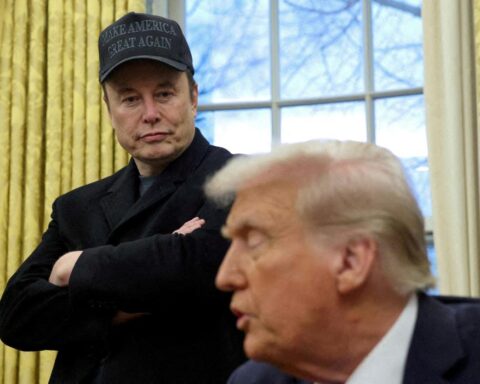Jensen Huang’s Bold Vision for AI Computing at the ‘Super Bowl of AI’
Nvidia CEO Jensen Huang took center stage at the company’s GTC conference—hailed as the “Super Bowl of AI”—to unveil the highly anticipated Blackwell Ultra computer chips, setting the stage for the next generation of artificial intelligence. In a two-hour keynote, delivered without a teleprompter and clad in his signature leather jacket, Huang made a bold case for Nvidia’s continued dominance in AI computing.
AI’s Exponential Growth and the Demand for More Power
Huang emphasized that the demand for computing power has skyrocketed beyond previous predictions, driven by the rise of agentic AI and reasoning models—advanced systems that can execute more complex tasks than traditional chatbots.
“Almost the entire world got it wrong,” Huang remarked. “The amount of computation we need as a result of reasoning AI is easily 100 times more than we thought we needed this time last year.”
Despite Huang’s bullish outlook, Nvidia’s stock dipped more than 3% in late trading Tuesday, closing at $115.73—a decline of nearly 20% over the past month. The slump follows concerns over Chinese AI startup DeepSeek, which claimed to have trained an advanced AI model for less than $6 million—without access to Nvidia’s top-tier chips due to U.S. export restrictions. This revelation sparked fears that companies could scale back spending on Nvidia’s hardware.

Blackwell Ultra and the Future of AI Hardware
Nvidia’s next-generation Blackwell Ultra GPUs will begin shipping in the second half of 2025. Huang called demand for the new chips “amazing,” reinforcing Nvidia’s pivotal role in the AI revolution.
Looking further ahead, Huang revealed plans for a more powerful chip family, dubbed Vera Rubin, which will outperform Blackwell and enable even faster AI processing speeds. This next wave of GPUs is set for release in the second half of 2026.
“If you take too long to answer a question, the customer is not going to come back. This is like web search,” Huang said, underscoring the need for AI systems to operate at lightning-fast speeds.

Nvidia Expands AI Reach with General Motors Partnership
Beyond its chip advancements, Nvidia also announced a strategic partnership with General Motors, aiming to revolutionize autonomous vehicle development. Nvidia’s technology will play a crucial role in GM’s manufacturing and design processes, as well as enhancing the in-vehicle computing systems that power self-driving cars.
With these latest innovations, Nvidia is doubling down on its vision to lead the AI industry into its next era. While market skepticism lingers, Huang’s roadmap for AI-powered computing reinforces Nvidia’s position at the forefront of an industry expected to define the future of technology.















